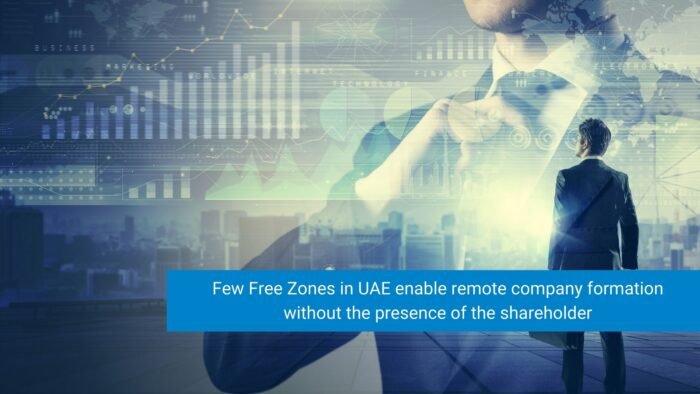UAE is a growing trade and economic hub with the Mainland and Free Zone companies contributing significantly to the growth of the economy. There are several advantages and Disadvantages for free zones and mainland companies in the UAE. An investor can choose either free zone or mainland depending on their business requirements.
The business-friendly policies in UAE make it a prime choice for foreign investors to set up their establishments and grow business here in UAE.
Advantages and Disadvantages of Free Zone and Mainland Companies in UAE
It is a major decision-making for every investor when it comes to moving to the UAE mainland from the Free Zone company. Multiple factors determine the choice:
There are advantages and disadvantages of Free Zone and Mainland Companies in UAE. However, the business owner must look at their specific requirement before choosing the jurisdiction.
Mostly, the advantages of a Mainland company over a Free Zone Company in UAE are:
- More Flexibility in Doing Business in UAE Local Markets
- Reduced Rental expenses and maintenance costs if the office is away from the city centre
- Hire more employees, open new branches, and more.
Similarly, there are a few important points to consider for the free zone company before moving to the mainland, those are:
1. Scope of Business Operations
For companies in specific industry sectors such as Manufacturing, it is advisable to remain in a free zone rather than on the mainland. Free Zones have Zero per cent customs duty for the import of raw materials and goods.

Another key advantage of a Free Zone Company is the 100% foreign Ownership in UAE. For example, the Dubai Airport Free Zone or Hamriyah Free Zone is ideal for setting up an international trading company in the UAE.
Thus, companies can easily facilitate trade through airports and seaports rather than being on the mainland.
The Free Trade Zones have easy access to customs and upscaled logistics setup for easy transit of goods to and from the UAE. Also, free zone companies can benefit from similar businesses around and work in collaboration.
2. List of Business Activities
One of the advantages of Free Zone companies is the scope of business activities and their selection. Within a single Free Zone license, the investor can choose up to 7 business activities (mix and match).
On the contrary, mainland Companies will have a disadvantage as certain business activities are favorable to operate in the Free Zone. This is especially due to the faster customs clearance and absence of company duty on imports.
Hence, while transferring the free zone company license to the mainland, the investor must ensure that a similar business activity is available on the Mainland. The investor must approach the new licensing authority in the mainland i.e., the Dubai Economic Development for the list of activities.
Also, the process of approvals, and procedure for obtaining a business license, UAE residence visa, etc., varies between the mainland and free zone.
3. 100% expatriate ownership in Mainland Companies of UAE
One of the major advantages for Mainland Companies of UAE is the 100% Expatriate ownership. There is a path-breaking change in UAE Commercial Law. However, investors must do their due diligence in choosing the right business jurisdiction.
The 100 % foreign ownership in the UAE mainland has created a buzz in the corporate landscape and is expected to give rise to a host of business opportunities.
It has given a choice for those who are already operating in UAE to gain full control of their business, as well as for the free zone companies to move to the mainland.
4. Shareholder Profile
One of the disadvantages of a Mainland Company is the additional step of updating the shareholder profile. For issuing the professional license in the Mainland of UAE, the investor must have the necessary qualifications.
Also, the educational records of the shareholders must be stamped by the Ministry of Foreign Affairs are required to be submitted for issuing the business license.

Whereas, in Free Zones, there are no such pre-approvals for service licenses. Few Free Zones in UAE allow company formation remotely without the presence of the shareholder. Thus, it is one of the advantages of having a Free Zone Company in the UAE.
5. Office Space and UAE Residence Visa
The Free Zones have an advantage due to the variety of built-in office spaces and co-working spaces. The investors can choose a wide range of business activities to start a business in any of the Free Zone of UAE.
Similarly, in the mainland, the most common office types are small offices and Flexi-Desk Solutions. Also, there are large warehouses and land availability for industrial units.
The advantage of a mainland company is many business centres offer Flexi-desk solutions. Most of the other businesses choose to have a physical office location on the mainland as their office address. Mainland company setup cost varies depending on the office rent, furnishing cost, and other administrative expenses.
6. UAE Residence Visa through Company Formation
The advantage of Free Zone company formation is the separate immigration and visa department for the investors. The processing time is slightly faster in the Free Zones. One of the disadvantages of a Free Zone is that the visa quota is as per the company package.
On the mainland, one of the major advantages is that the employee visa quota depends on the office space, whereas in the Free Zone, there is a visa quota for a business license that is pre-set.
Free Zone office space must be upgraded to increase the staff size, which could in turn be a costly affair when compared to the mainland. The rentals for the commercial spaces in the mainland are much more competitive with more options becoming ready across UAE.
7. Flexibility – Scope of Business Operations
The Free Zone business is ideal for services, general trading, and commercial sectors. These sectors export the majority of their products. Also, they venture into the local UAE market through distributors.
Free Zone regulations and policies govern the Free Zone company operation in UAE. In terms of the scope of business operations, Free Zone has a well-defined structure. So there are some disadvantages in the flexibility to expand to new office space.
In the case of a mainland registered company, the company can take office anywhere in the UAE and start doing business there.
8. Branch of a Free Zone Company
It is not possible to transfer a Free Zone company in UAE directly to the mainland. Opening a branch of the Free Zone Company with the respective Department of economic development is an option to expand its presence in the mainland of UAE.

Another option is to liquidate the Free Zone company and open a new company in the mainland of UAE. Then, the company can continue doing business within the local UAE and GCC markets.
So, in conclusion, the investors must have a clear understanding of their business expansion and growth plans. Depending on specific business requirements the Free Zones and Mainland in UAE have distinct advantages and disadvantages that investors can benefit from.
To know more about Company Formation in UAE, talk to our expert team right away!
You may also be interested to know more about the What is the difference between Free Zones and Mainland?











